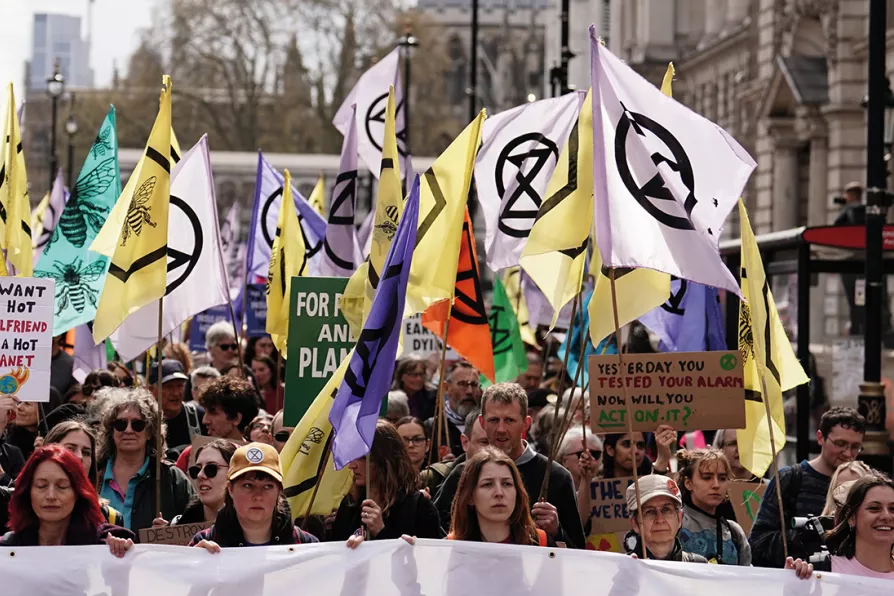
 Extinction Rebellion demonstrators end four days of action with a march on Whitehall, London, April 24 2023
Extinction Rebellion demonstrators end four days of action with a march on Whitehall, London, April 24 2023
A YOUGOV poll this year places the economy, health and the environment as the top three concerns of the electorate — but this is a false division.
Both the economy and health fold into the climate and environmental emergency. The former two cannot be addressed without first tackling the causes of climate breakdown and the decline of the natural world. There is no economy on a dead planet.
The Earth’s biosphere and climate are inextricably linked. Global heating has exacerbated the degradation of the natural world and, conversely, the decline in nature feeds the climate emergency. Restoring nature alongside cutting emissions is crucial to limiting temperature rises to 1.5°C.

Climate justice and workers’ rights movements are uniting to make the rich pay for our transition to a green economy, writes assistant general secretary of PCS JOHN MOLONEY, ahead of a major demonstration on September 20

Women are a vital part of the labour movement and have much to contribute, but there’s far more to be done to make sure that our sisters’ voices are truly heard, says PHILIPA HARVEY












